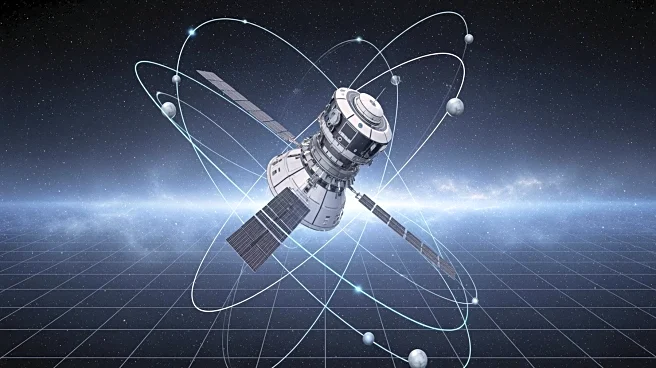What's Happening?
In a groundbreaking move for space traffic management, China's space agency (CNSA) reached out to NASA to avert a potential satellite collision. The CNSA identified a 'conjunction,' or close approach, involving one of NASA's satellites and proposed to adjust
its satellite's trajectory while NASA maintained its position. This marks a significant shift in space safety protocols, as traditionally, NASA would instruct China to remain stationary while it maneuvered its own satellites. This development was highlighted by NASA official Alvin Drew during an international space conference in October. The increase in satellite launches, particularly from SpaceX's Starlink and China's Guowang and Thousand Sails constellations, has intensified the risk of collisions in low Earth orbit.
Why It's Important?
This incident underscores the growing need for international cooperation in space traffic management as the number of satellites in orbit continues to rise. The proactive communication from China demonstrates advanced space situational awareness and highlights the importance of collaboration to prevent space debris and potential collisions. The event also suggests that space safety can transcend geopolitical tensions, despite existing restrictions on formal NASA-CNSA discussions due to the US 'Wolf Amendment.' The call for cooperation is further emphasized by the increasing 'space junk,' which poses significant risks to both current and future space operations.
What's Next?
The collaboration between NASA and CNSA may pave the way for more comprehensive international agreements on space traffic management. As the number of satellites continues to grow, the establishment of an international debris-tracking center, as advocated by Chinese President Xi Jinping, could become a reality. This would facilitate better coordination among global space agencies and commercial operators, potentially leading to more robust protocols for avoiding satellite collisions and managing space debris.
Beyond the Headlines
The incident highlights the ethical and strategic dimensions of space exploration, where cooperation is essential despite geopolitical differences. The ability to share information and coordinate actions in space could lead to a new era of international collaboration, setting a precedent for future interactions in space exploration and safety. This development may also influence policy changes, encouraging more countries to invest in space situational awareness technologies.















